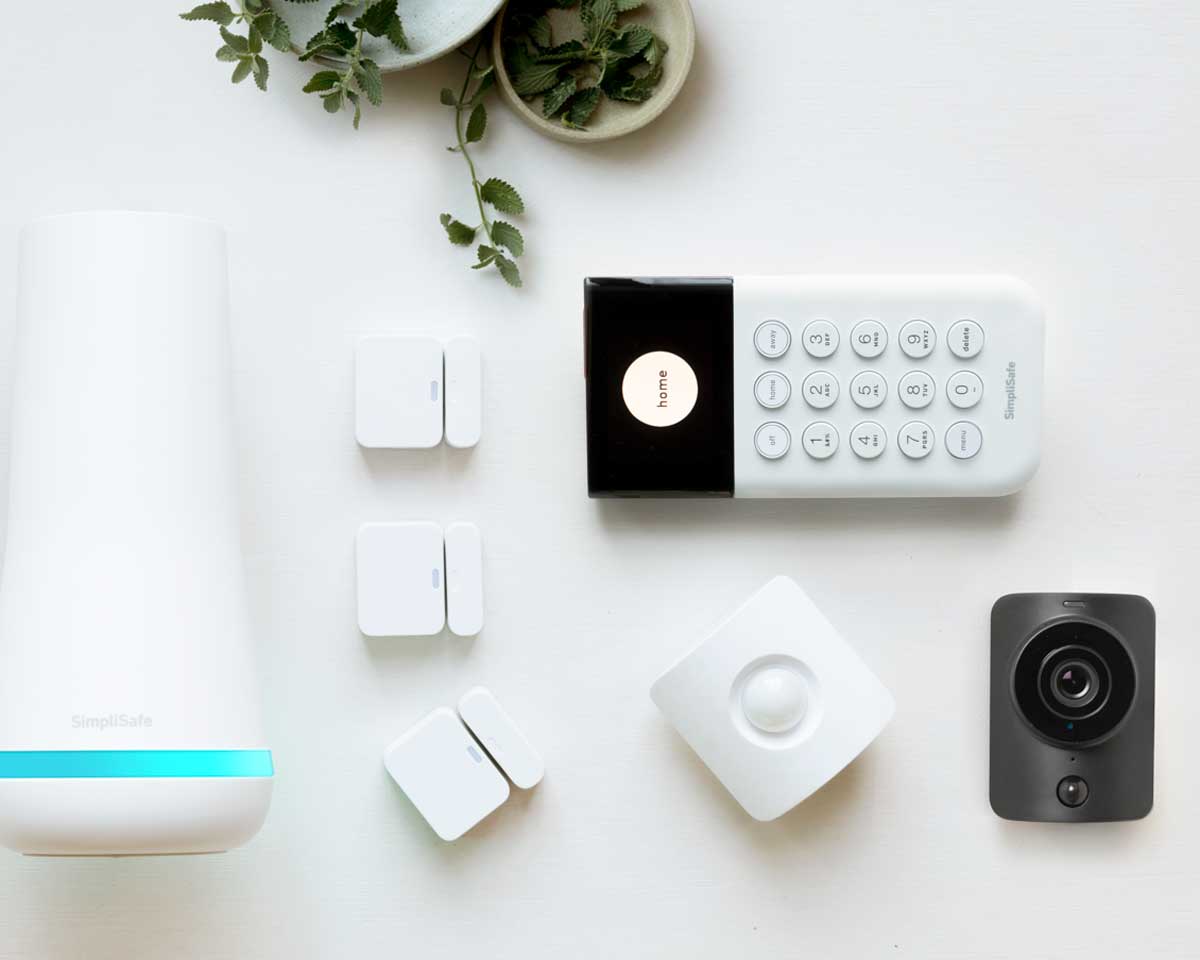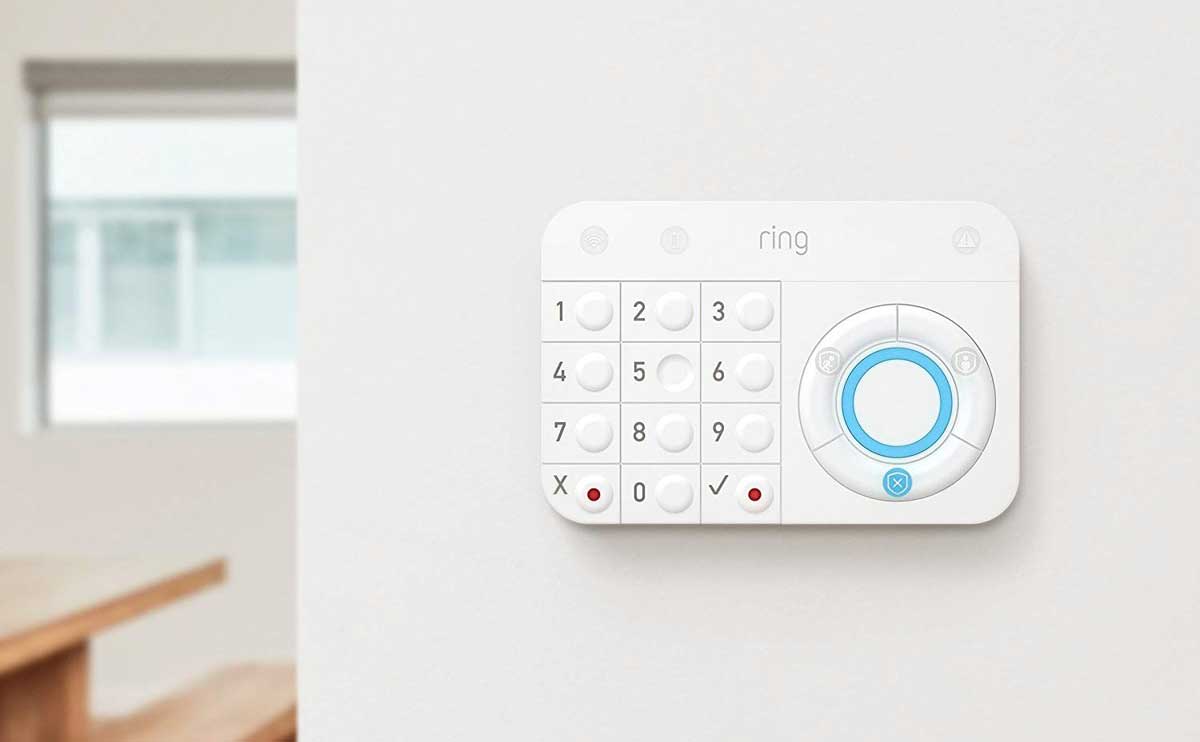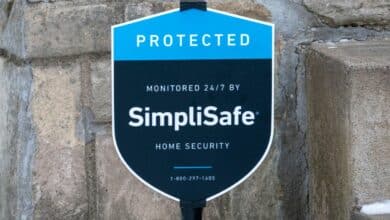DIY vs Professional Security System: Cameras, Monitoring, Cost, Wireless, And More Compared
When you purchase through links on our site, we may earn a commission. Here’s how it works.
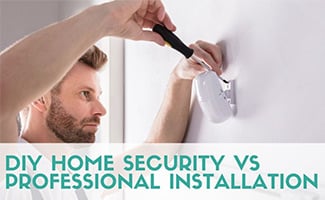
Before you purchase a home security system, you want to decide what type of installation you’re comfortable with. Many home security systems on the market today have DIY (do-it-yourself) setups. However, some require a professional’s assistance. Which type of installation is right for you, and does the installation type affect the way the system performs?
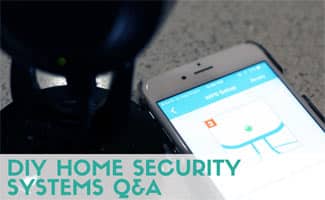 DIY Installation
DIY Installation
A security system that requires DIY installation may sound daunting, but it’s actually as easy as peeling and placing a sticker for most of the equipment. This peel-and-stick installation method keeps installation easy and fast, and it also eliminates the need for tools (no drilling required).
Here’s a quick overview of some of the advantages and disadvantages of self-installing a home security system. We’ll get into the details a bit more below the table.
| Pros | Cons |
|---|---|
|
|
Add More Devices Gradually
One reason to consider a DIY home security system is that you can easily add new components to your system at any time. This is a convenient, budget-friendly option for those of you who want to gradually increase your system’s size without paying for a bunch of devices at once.
Your system can grow as your needs grow. Start with securing key entry points to your home and slowly add on security cameras, smart lights, and more to turn your home into a fortress.
For Smaller & Larger Homes
DIY systems are typically best for smaller, single-level homes since the devices are wireless and need to be within the range of the security system’s base station, hub, or control panel. Most security companies require the devices to be within 250 feet from the base station, hub, or control panel. The range can vary based on the security company’s technology, so it’s best to check with the security company.
However, more security companies are offering range extenders in their equipment lineups, which help security systems expand the network range and enable the devices to reach the base station. This allows DIY systems to be more easily integrated into larger, multi-level homes.
Easy To Move
If you live in an apartment or rent your home, you most likely want to protect it with a DIY system. These systems are easy to move and don’t leave holes in the walls after removing the equipment since they use peel-and-stick sensors.
No Installation Fees
Self-installed security systems eliminate the installation fee that you may see tacked onto a professionally installed security system.
Tech Savvy
However, DIY setups aren’t for everyone. You may want to consider a system with professional installation if you’re unable to stand on a chair or ladder to install devices or are less technically inclined. DIY installation also requires you to troubleshoot any issues you may run into and contact customer service for assistance.
Self Or Professional Monitoring
Depending on the security company you choose, your DIY system may have the option for self or professional monitoring. Professionally monitored security systems are considered safer than self-monitored security systems. However, they each come with their own pros and cons. Read about the pros and cons of self and professionally monitored security systems here.
Companies That Offer DIY Installation
Did you know that many of our top-ranked home security companies offer DIY installation? If you need assistance installing your system, we have a handy security system installation guide to help you.
- Abode
- Brinks
- Cove
- Frontpoint

- Kangaroo
- Link Interactive
- Nest Secure
- Ooma
- Protect America
- Ring Alarm
- Scout Alarm
- SimpliSafe
 Professional Installation
Professional Installation
A professionally installed security system can save you from installing the system yourself. But it may require you to be home for a window of time that requires you to take time off from work. This may not bother you since you can tend to other things around your house while at home (or just veg out on the couch).
Here are the pros and cons of having a system professionally installed. See below for more details on all the factors to consider.
| Pros | Cons |
|---|---|
|
|
Ensures Correct Installation
Professionally installed systems ensure your security system is installed correctly and functioning properly without calling into customer service. This saves you potentially hours of headaches, although most DIY systems are fairly easy to install. The professional will be more efficient at installing your security system than you, so the process should go more smoothly for them.
May Require Drilling & Hardwiring Into Walls
This may not be a huge deal to you, but if you want to avoid damaging your walls, it’s something to consider. Many professionally installed security systems are hardwired, so before you purchase, find out if the equipment is wireless or wired and ask what the installation process involves.
Difficult To Move
If the system is hardwired into your home, it can make moving the equipment more difficult. However, the security company may offer assistance with moving if you relocate homes during your contract.
Not Ideal For Apartments Or Renters
Additionally, hardwired systems aren’t typically approved for apartments or renters. Many landlords include policies in their contracts regarding damage to walls, so you may not be allowed to install a security system. If this is the case, you’ll want to consider a DIY security system.
Help With Customizations
The installer can help you design a customized system for your home, so there is no unnecessary overlapping equipment. The installer may point out some of your home’s security vulnerabilities and offer equipment suggestions to maximize security.
They can also help make the system less conspicuous and blend into your home’s decor more than a DIY system because it isn’t designed to be a “one-size-fits-all” style like a DIY system. Professionally installed equipment can include multiple equipment options to help with your home’s aesthetics, but this isn’t the case for every security company.
Requires A Professional When Issues Arise
If you have a problem with your system’s component, a professional will most likely need to come out and repair it. This may come with a service call fee. If there’s an issue with your DIY system, you’re responsible for troubleshooting and connecting with tech support, which could take a lot of time. While neither of these solutions is ideal, it’s something you want to consider beforehand.
Adding More Equipment Can Be Costly
Additionally, if you want to add more devices to your security system, you’ll need to request a professional’s help with installation. This could cost you a service call fee and/or an installation fee on top of the additional equipment fee.
More Expensive Than DIY
Equipment is typically more expensive for professionally installed systems than DIY systems. You may be charged an installation fee on top of your existing equipment fee. However, some companies offer free equipment up to a certain amount.
No Self-Monitoring Option
Professionally installed security systems typically don’t offer a self-monitored option. While we feel a professionally monitored security system is the safest, we also realize this isn’t for everyone. So if you want to self-monitor your security system, you’ll most likely need one that has DIY installation.
Companies That Require Professional Installation
Here are some of the best companies that offer a professional installation option. Find out which security company we think is the best that offers professional installation.
Ask Your Questions
If you have more questions about DIY installation and if it’s for you, read our DIY home security FAQ. We answer commonly asked questions to help you obtain a clear understanding of how it all works.

